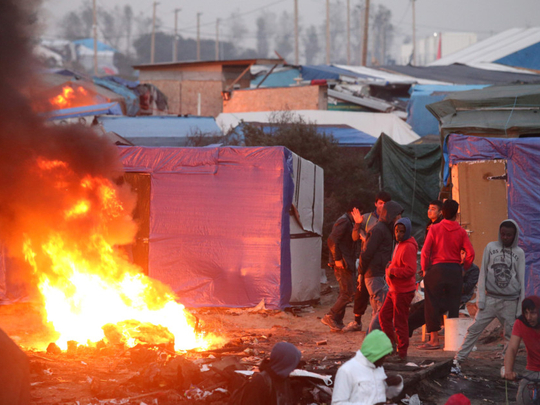
I moved to England when I was 14. Like many migrants, I moved for the opportunities. My school in Nigeria was excellent, but it was an excellence focused on the sciences. Moving to a British school meant moving to a system that invested as much energy in teaching literature, history and music as it did in teaching maths.
It was a privileged, cushioned move, smoothed by the presence of my mother, who waited a few months for me to settle down. Yet, it was still a fraught transition, as all major changes are in a teenager’s life. Once arrived, I wanted to go back. The joys of learning about iambic pentameter were no compensation for the weather and the food and the tight cliques of English girls, socially stratified in ways that were incomprehensible to me.
I got over it. I made friends. I learned to tolerate the cold and grew stoic about the food. What doesn’t kill you makes you stronger, and so on.
But I wonder how I would have felt if, on arrival, there had been an official waiting with gloved hands to grasp my chin and peer into my mouth. To pass an x-ray through my molars to determine if I really was 14. To be met with suspicion as I took my first steps into a new country. After all, I was tall for my age, often mistaken for older, sometimes as old as 21.
On October 19, Tory MP David Davies, who is also the Brexit Secretary, had called for age-verifying dental tests to be carried out on child refugees coming to England from the Calais camp. Although the British Dental Association and the Home Office have ruled out this strategy as unethical, Davies’ view has supporters. Jack Straw, a former Labour home secretary, said he would not have ruled out dental checks for migrants when he was in office.
I would like to note that these children are refugees, not “migrants”, as some reports have taken to calling them. At 14 I was a migrant. I had a home to return to, should the Home Office have suddenly revoked my visa. I had a family in Nigeria, a house, food, clothing and so on.
What is the official response to a man or woman fleeing death? Sorry, you are too old to receive kindness?
When your home is a bomb crater and you are forced to leave it because of war, you become a refugee. A nine-year-old Syrian child does not reach France unaccompanied because she wants access to the French job market, or better education, or a better healthcare service. She is a child running for her life.
In the 1930s almost 10,000 Jewish children arrived in Britain , escaping Nazi persecution. Britons rose to the occasion, quietly and without fuss. There is no reason why this could happen again, if only compassion were allowed back into public discourse.
It is the descendants of that generation of Britons who now fret over “how many is too many”, when only a handful have arrived.
It is true that some who say they are child refugees may not be children. A 25-year-old might claim to be 16. A 19-year-old might claim to be 14. But what is the official response to a man or woman fleeing death? Sorry, you are too old to receive kindness? Your teeth are too mature for you to be granted refuge?
Slowly and steadily, compassion is being leached from the public sphere in Britain. Cabinet ministers glibly announce that anyone hiring foreigners should be named and shamed. Instead of a generation of politicians saying this could be Britain’s finest hour, Britons are told to barricade, to prepare for siege and to creep away into their bunkers. Instead of standing with the world in crisis, Britain is being urged to shut itself off.
It is dangerous to live in a place without compassion. When all the foreigners and migrants and refugees have been sent away, when we have been ferreted out of jobs and schools and NHS hospitals, who will be left to blame? A society without compassion, when it has eaten all the others, will turn inwards and eat itself.
The response to the child refugees is an early indicator of what Britain will be like after it leaves the EU. Open or closed? Compassionate or tight-fisted? Davies has given his answer. What is yours?
— Guardian News & Media Ltd
Chibundu Onuzo, a Nigerian writer, is author of The Spider King’s Daughter. Her second novel, Welcome to Lagos, is out in January 2017.








